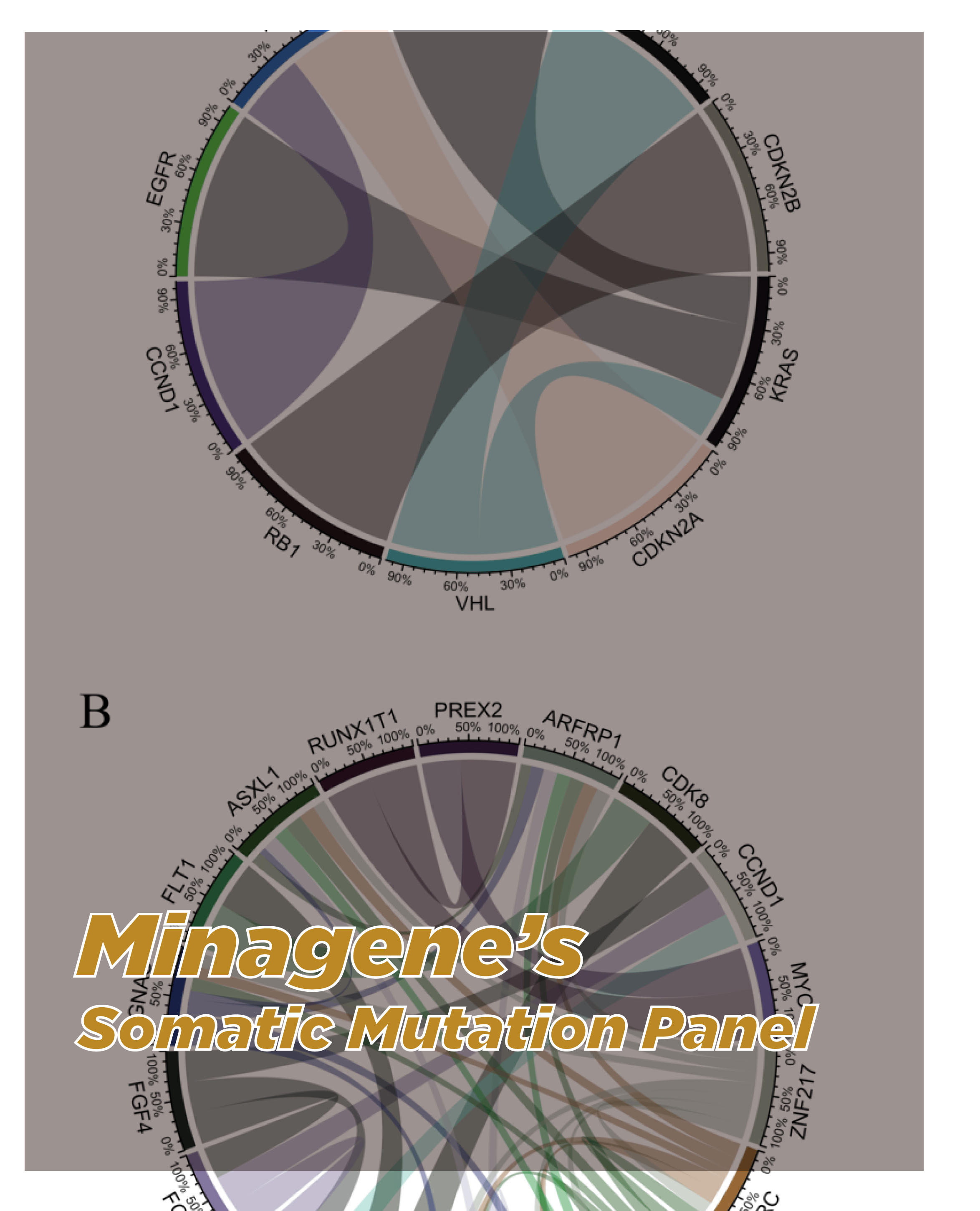
Overview
Minagene’s Somatic Mutation Panel is a cutting-edge genetic evaluation tool designed to aid physicians in the assessment of somatic mutations in cancer patients. This advanced panel utilizes state-of-the-art technology and methodologies to identify and analyze genetic alterations that play a crucial role in tumor development, progression, and response to treatment. By providing comprehensive genomic profiling, the Somatic Mutation Panel offers valuable insights to guide personalized cancer care and optimize treatment strategies.
Methodology
The Somatic Mutation Panel employs next-generation sequencing (NGS) technology to analyze tumor tissue samples. It utilizes targeted gene panels specifically designed to detect somatic mutations across a wide range of cancer-associated genes. The NGS-based approach enables the simultaneous assessment of multiple genetic alterations, including single nucleotide variants (SNVs), insertions and deletions (Indels), copy number variations (CNVs), and gene fusions. By capturing and sequencing tumor-specific genomic regions, this panel allows for a comprehensive evaluation of the mutational landscape within the tumor genome.
Key Highlights of the Test
-Comprehensive Gene Coverage: Minagene’s Somatic Mutation Panel covers a broad range of cancer-associated genes, including those commonly mutated in various cancer types. This extensive gene coverage ensures a comprehensive evaluation of somatic mutations, enabling physicians to gain a deeper understanding of the genetic alterations driving the patient’s cancer.
-High Sensitivity and Specificity: The Somatic Mutation Panel utilizes advanced sequencing technologies and bioinformatics algorithms to achieve high sensitivity and specificity in mutation detection. This ensures accurate and reliable identification of somatic mutations, even at low allele frequencies, providing physicians with precise genomic information for treatment decision-making.
-Actionable Mutation Insights: The panel not only detects somatic mutations but also provides actionable insights by linking the identified genetic alterations to relevant targeted therapies, immunotherapies, and clinical trials. This information empowers physicians to make informed treatment decisions and explore personalized therapeutic options for their patients.
-Tumor Heterogeneity Assessment: The Somatic Mutation Panel enables the assessment of tumor heterogeneity by identifying subclonal mutations within the tumor. This information is crucial for understanding the tumor’s evolutionary dynamics, predicting treatment response, and monitoring disease progression.
-Diagnosis and Subtyping: The Somatic Mutation Panel can aid in the diagnosis and classification of various cancer types by identifying specific somatic mutations associated with particular malignancies. This information helps guide treatment decisions and determine the appropriate course of action.
-Treatment Selection: The panel assists in selecting optimal targeted therapies or immunotherapies based on the identified somatic mutations and their known associations with drug response. This allows for personalized treatment selection and potentially improves patient outcomes.
-Monitoring Treatment Response: The Somatic Mutation Panel can be used to monitor the evolution of somatic mutations during the course of treatment. Serial testing can help assess treatment response, detect emerging resistance mechanisms, and guide therapeutic adjustments for improved patient management.
-Prognostic Evaluation: By analyzing somatic mutations associated with prognosis, the panel provides valuable insights into the patient’s disease trajectory, aiding in prognostic evaluation and informing long-term care plans.
